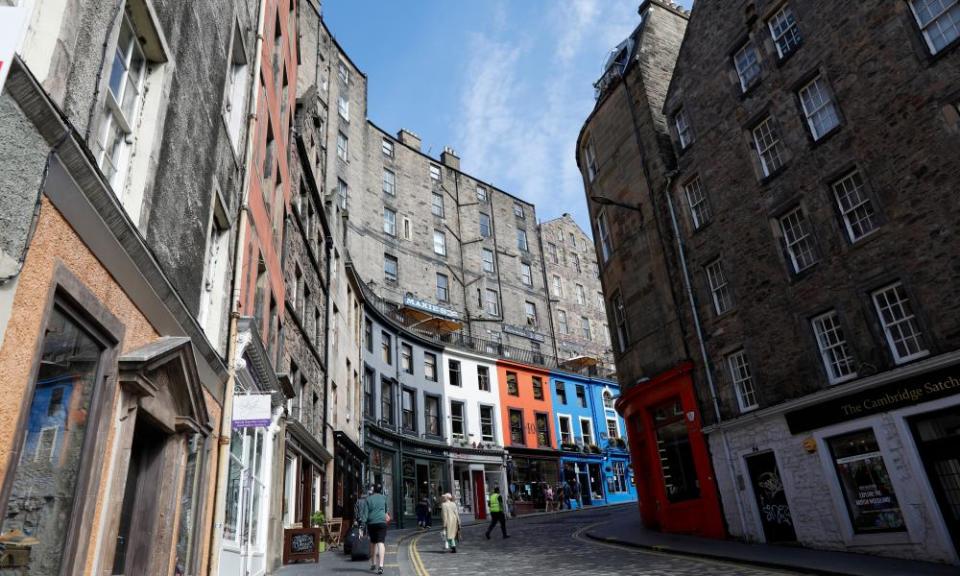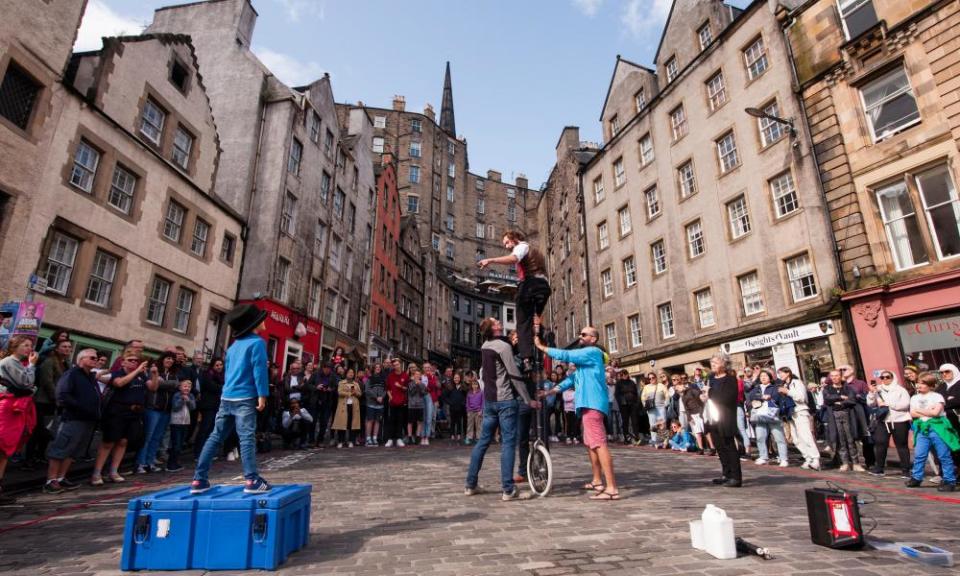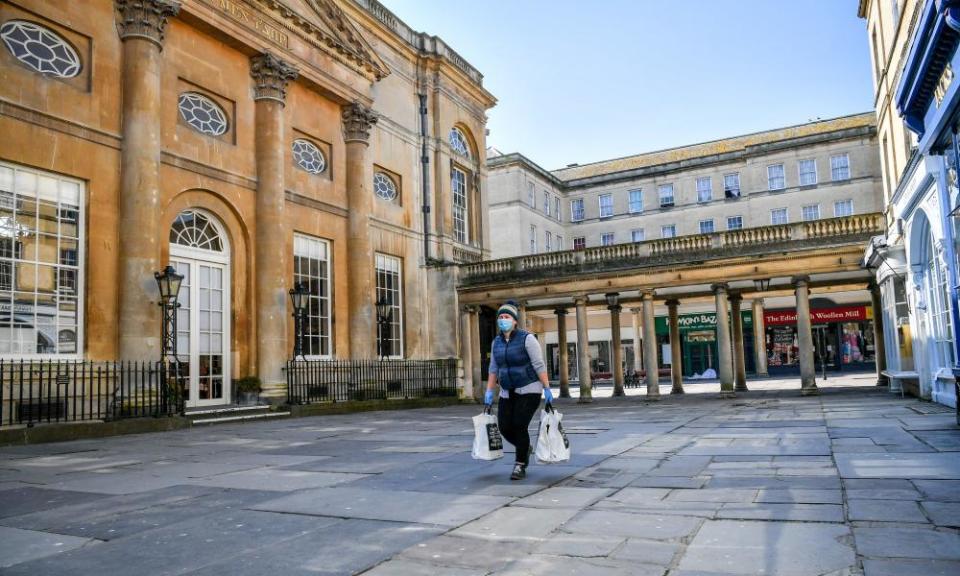‘It’s a ghost town’: tourism crisis hits British cities from Edinburgh to Bath

On a typical July day, restaurateur Paul Wedgwood would see hundreds of people with wheelie suitcases – airline tags still attached – walking past the window of his restaurant on Edinburgh’s Royal Mile. This Thursday, he has seen just two. “We would normally look outside and you wouldn’t be able to see any tarmac – now it’s bare,” he said. “It’s just a ghost town.”
Like other British cities which usually attract high numbers of international tourists throughout the summer, Edinburgh is quiet, and businesses are suffering. August’s festival had already been cancelled when news came last week that December’s Hogmanay party will not go ahead as usual.
The city attracted 2.2 million overnight visits by overseas tourists in 2019, making it second only to London as a destination for travellers to the UK. But coronavirus has created an unprecedented tourism crisis.
Typically, we would run 54 tours a day at this time of year and would be sold out. Now we’re running 14
Paul Nixon, the Real Mary King's Close
Wedgwood reopened his restaurant 10 days ago, and last weekend was busy with support from locals, but the loss of the festival in August will be a big test. “That is going to be the strangest and hardest month ever,” he said. “Normally we don’t even have to think about August because there are more people than seats – it’s a matter of how can we just keep people coming through.”
Further along the Royal Mile, Paul Nixon, who runs the Real Mary King’s Close attraction, where visitors are invited to journey back in time and discover Edinburgh’s “dark past”, said at this time of year all his bookings would be overseas tourists.
“Typically, we would run 54 tours a day at this time of year and would be sold out,” he said. “Now we’re running 14.”
Nixon said he had considered advertising locally, but people who lived in Edinburgh seemed to be heading out of town now that restrictions were lifting. “They’ve never had the city to themselves in August – they’re used to sharing it, but I think they’ll all be away.”
Andrew McRae, who runs four shops in the Old Town, selling Harry Potter merchandise, said typically about 80% of his customers had travelled to the city from outside the UK. He usually works from 10am until 10pm in summer, but the three shops he has reopened are operating on a part-time basis. “We are desperately worried,” he said. “There’s great uncertainty for the future.”

Suspicions that domestic travellers are shunning cities seems to be borne out across the UK. Figures from lastminute.com show that the biggest leaps in bookings after lockdown was eased was for trips to destinations on the coast. Between 4 and 22 July, Skegness, for example, had an 800% increase in bookings year-on-year, while Scarborough had an uptick of 500%.
Footfall figures from data firm Springboard show year-on-year visits to all high streets are down, but coastal towns have seen less of a fall than other towns and cities.
Adam McVey, leader of Edinburgh’s city council, said the city had been rethinking its tourism strategy before the pandemic, and had signed off on a plan earlier this year which put the focus on local people.
“This was very much focused on moving away from the idea of generating growth for growth’s sake,” he said. The strategy included making sure regulations around Airbnb-style short lets were enforced, and making sure local people get the benefit from jobs in tourism. “We worked on the basis of what is good for the residents is good for the tourist.” McVey said that after the 2008 crisis businesses “were pulling up the drawbridge and becoming more risk averse”, and things like fair work for locals were considered “nice to haves”. This time, he said, everyone agreed that the strategy should continue.
Edinburgh is not the only British city suffering from a lack of tourists. Some 320 miles south in Bath, 400,000 overseas visitors would normally flock to pass some or all of their holiday there. This summer, though, Bath is struggling. Usually a magnet for visitors from the US and China, the west country city started to feel the effects of the coronavirus before lockdown, said head of Visit Bath, Kathryn Davis.

Local people are being encouraged to visit attractions, with discounts and an advertising campaign, and there is a focus on attracting domestic tourists. Local hotels have had to have a rethink. Bailbrook House Hotel, which previously attracted a lot of visitors from China, is encouraging domestic visitors to call and arrange bespoke breaks.
But replacing international travellers with domestic tourists is not straightforward. “International visitors tend to stay a lot longer and to spend more,” said Davis.
The council has lost more than £17m in tourist income since lockdown began, and has said that after the crisis it “can’t go back to dependence on mass tourism”. It wants instead to rebuild its economy with more focus on tech businesses and high streets that serve locals.
London has also felt the effects of the crisis. Christian Kaberg, operations director at St Pancras Hotel Group, has reopened just one of the three hotels that it runs at the site just next to the Eurostar terminus in King’s Cross.
He said there is “no leisure market at all”, and that business traveller numbers were tiny.
Like all of the businesses the Observer spoke to, he said that there needed to be a strong message delivered that it was safe for people to come back. “A couple of years ago there was that campaign saying London is open for business. We need that kind of thing.”

 Yahoo Finance
Yahoo Finance 